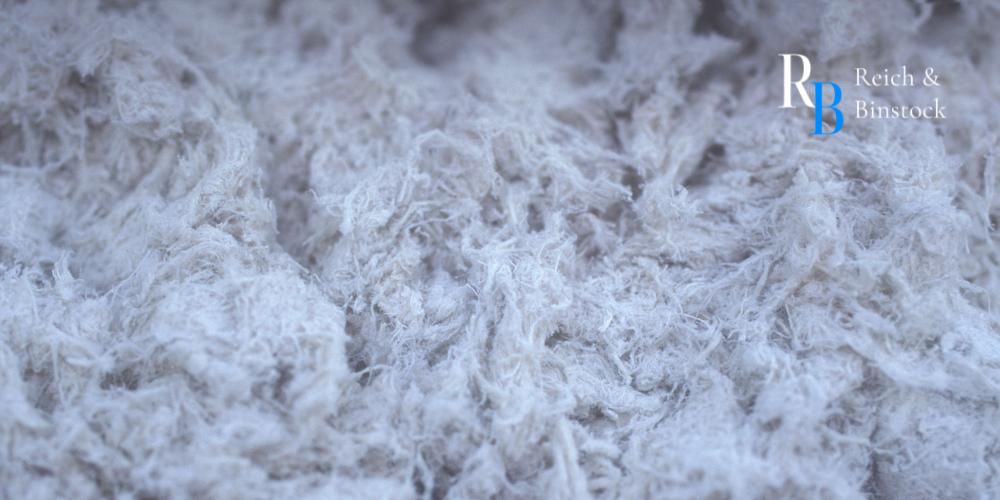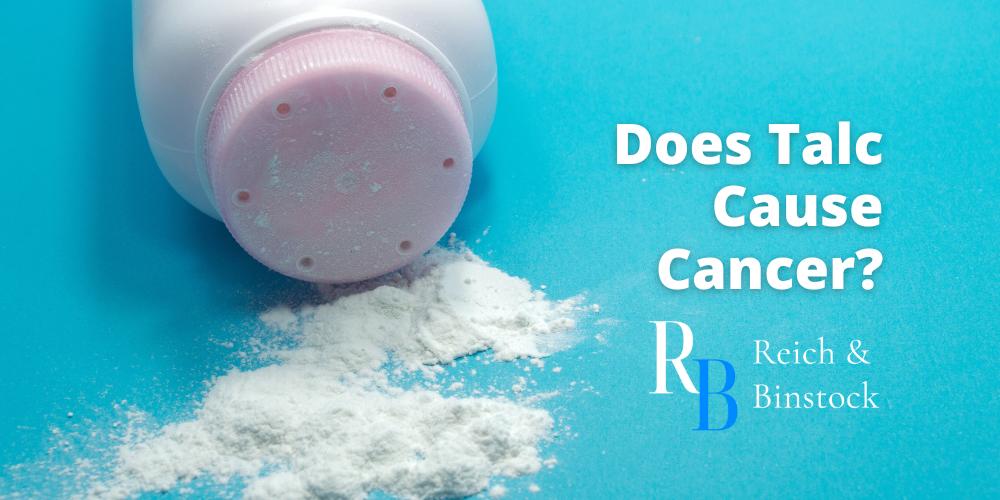When it comes to personal care products, safety is a paramount concern, especially regarding ingredients we use daily. Talc, a mineral found in a myriad of products, from baby powders to cosmetics, has come under intense scrutiny. “Does talc cause cancer?” is a question on the minds of many consumers, who are becoming increasingly aware and concerned about the products they use and their long-term health implications.
Could something as routine as the talcum powder we sprinkle on our skin or the makeup we apply to our faces carry hidden risks? Is there a link between talc and serious health conditions like ovarian cancer or mesothelioma? The safety of ourselves and our families could hinge on the verdict.
Many research studies have shown that talc exposure can lead to an increased risk of certain cancers. Suppose you or a loved one have suffered from ovarian cancer, mesothelioma, or another condition as a result of talcum powder use. In that case, the Talcum powder liability lawyers at Reich & Binstock are here to help.
Our attorneys are prepared to go the extra mile to ensure you and your family receive the level of care, respect, and support you need. Not only that, but we’ll fight to help you recover the compensation you deserve. Call us at (713) 622-7271 to schedule a free case evaluation with one of our lawyers.
What Is Talcum Powder?
Talcum powder is a fine, soft powder made from talc, a mineral composed primarily of magnesium, silicon, and oxygen. It is widely used for its ability to absorb moisture and reduce friction, which helps to prevent rashes and skin irritation.
Talc-based powders can be used for personal hygiene, deodorization, and infant care.
What Products Contain Talcum Powder?

Over the years, different products have contained talc-based powder for various reasons. Some of the most common and recognizable talcum powder products include:
- Baby powder
- Body powder
- Facial cosmetic products
- Deodorant powder
- Soap
- Lotion
- Chalk
- Polishing compounds
Additionally, it may be used in the packing and manufacturing of things like pharmaceutical pills and chewing gum to decrease moisture and prevent sticking.
Cosmetic Products
Cosmetic talcum powder can be found in a number of makeup and beauty products, including:
- Setting powder
- Blush
- Powder foundation
- Eyeshadow
- Bronzer
- Mascara
Many people may assume that commercial cosmetic talcum powder is safe for use simply because it is a cosmetic product, and cosmetics have to undergo a certain amount of testing. However, most cosmetic products do not have to undergo review and approval by the FDA before marketing and selling. They simply have to be safe when used as labeled.
Talc and Baby Powder
Talcum powder has historically been used in baby powder to prevent diaper rash. It was the main ingredient in Johnson & Johnson’s baby powder for decades. Other major companies like the Colgate-Palmolive Company have also sold talc-based baby powder. Many individuals have filed Talcum powder lawsuits against these companies. Other lawsuits have been filed against major retailers in the U.S. like Walmart and Target.
Is Talcum Powder Toxic?
Talc powder can be toxic to infants and children if inhaled or ingested in large quantities. This is a risk that baby powders like Johnson & Johnson’s warn against. Unfortunately, they do not warn against potential asbestos exposure. Because of this lack of warning, many people have suffered from serious personal injuries from talcum powder use. Many victims have contacted experienced personal injury attorneys to file claims for compensation after suffering injuries.
Asbestos and Talc
Talc can be incredibly dangerous to a person’s health if it contains asbestos. Asbestos isn’t just one mineral compound; it’s actually a group of naturally occurring fibrous minerals that are resistant to heat, electricity, and corrosion. Because of this, asbestos is common in construction and manufacturing.
However, asbestos is also highly toxic and a known human carcinogen. On a microscopic level, asbestos fibers are long and thin, like a needle. If inhaled, these particles can lead to mesothelioma, lung cancer, and other respiratory diseases.
Asbestos is so detrimental to the human body that there is no “safe” level of asbestos that a person can be exposed to–any exposure could increase a person’s risk of various conditions.
But how could talc dust become contaminated with asbestos? It can actually become contaminated with asbestos during the mining process before it is ever processed, manufactured, and distributed.
Talc and asbestos are minerals that naturally occur in close proximity to each other in the earth. When talc is mined, if the mining operations are not carefully controlled, asbestos fibers can be disturbed and released, intermixing with the talc particles and infiltrating the final talc-based product.
Can Talc Cause Cancer?
Yes, studies have shown that talcum powder can lead to an increased risk of certain cancers. The scientific community has debated this for decades, and professionals are still currently researching talcum powder and its potential cancer risks. However, there is an overwhelming amount of evidence that links talcum powder to certain forms of cancer.
It’s possible that any amount of exposure to talc products could result in cancer, but it’s highly unlikely. It’s the prolonged, repeated exposure that’s particularly dangerous. According to the International Agency for Research on Cancer, increased use was associated with an increased risk of developing cancer, more specifically, ovarian cancer.
Additionally, there are certain biological factors that, when combined with repeated perineal powder exposure, may lead to an increase in ovarian cancer risk. A 2009 study done by Cancer Epidemiol Biomarkers Prev found individuals with certain gene variants had a higher risk of ovarian cancer when exposed to talc-based body powder as opposed to those without these gene variants. Outside of this study, these genes do not have any known carcinogenic risks.
How Can Talcum Powder Cause Cancer?

Various studies have linked talc to an increased risk of ovarian cancer, mesothelioma, and some other cancers, but how it causes cancer can differ. As we’ve established, talcum powder can potentially cause cancer if it contains asbestos, which is known to be a carcinogen.
Asbestos-contaminated talc, when applied to the genital area or inhaled, can lead to the development of ovarian cancer, mesothelioma, or potentially other forms of cancer. The particles of asbestos in the talc can become lodged in the body’s tissues, leading to inflammation and cellular damage over time, which increases the risk of cancer cell formation.
Additionally, recent research by Environ Res suggests that even asbestos-free talc can cause ovarian cancer. When people use talcum powder on their genital area, there is the possibility that talc powder particles may travel into the vaginal canal, uterus, fallopian tubes, and eventually into the ovaries.
These particles, when combined with the hormone estradiol, generated pre-cancerous cells. Estradiol is a naturally occurring hormone that is produced by the ovaries. The same study used other small particles that could cause inflammation and potentially lead to cancer within the ovaries, but none of these controlled variables led to pre-cancerous cell growth.
What Types of Cancer Is Talc Linked To?
Talc has been heavily linked to both ovarian cancer and mesothelioma, and it has been potentially linked to uterine cancer and lung cancer.
Ovarian Cancer
Perineal talc exposure is often linked to an increased risk of ovarian cancer in those with ovaries. As the name suggests, ovarian cancer is a type of cancer that begins in the reproductive glands known as the ovaries.
Unfortunately, in its early stages, ovarian cancer often goes undetected, since many of the subtle symptoms of early-stage ovarian cancer are similar to symptoms of other conditions. Some symptoms may only become noticeable after the cancer spreads within the pelvis and abdomen.
In its late stages, ovarian cancer is more difficult to treat and can be fatal. The American Cancer Society reports that ovarian cancer is the fifth most deadly form of cancer among women and is the most deadly form of female reproductive cancer.
Additionally, with the known carcinogenic risks associated with asbestos, it’s also believed that asbestos-contaminated talc could result in an increased epithelial ovarian cancer risk. Either way, it’s the manufacturer’s responsibility to properly test their products before they ever reach store shelves, especially products marketed as cosmetics.
Uterine Cancer
Genital talc use has also been linked to an increased endometrial cancer risk. Endometrial cancer is the most common form of uterine cancer, and it affects the tissue (endometrium) that lines the interior of the uterus. According to existing research, talcum powder has only been found to increase endometrial cancer risk in postmenopausal individuals, but research linking talc to cancer is still ongoing.
Mesothelioma

Mesothelioma is a rare and aggressive cancer that primarily affects the lining of the lungs (pleural mesothelioma) or abdomen (peritoneal mesothelioma), commonly associated with asbestos exposure.
Since a number of talc products contain asbestos, it’s easy to understand how talc-based products can lead to an increased risk of mesothelioma. However, it’s more difficult to study than ovarian cancer due to how rare mesothelioma is.
In addition to the use of talcum in consumer products like baby powder, talc may also lead to an increased risk of mesothelioma in miners who mine for raw talc. Due to natural talc’s proximity to naturally occurring asbestos, talc miners can easily become exposed to asbestos as a result of their job.
Pleural Mesothelioma
Since talcum powder is easily inhalable when used near the face, nose, and mouth, it’s believed that talc use could lead to an increased risk of developing pleural mesothelioma. This is the most common form of mesothelioma, and, while treatable, it is not curable, making it incredibly deadly.
Lung Cancer
There’s also a concern that talc exposure can lead to an increased risk of lung cancer, specifically in those who extract and process raw talcum. One study revealed that even non-asbestos talcum powder could still increase the risk of lung cancer. Further studies are necessary to confirm this claim definitively.
How to Reduce Exposure to Talc
Due to the serious health risks associated with talc use, those who endure regular talc exposure or who regularly use talc powder should consider the risk and potentially discontinue using talcum powder. Even asbestos-free talc and cosmetic-grade talc have been linked to serious forms of cancer.
Some ways to decrease exposure to talcum powder include:
- Choosing talc-free personal care products and carefully avoiding ones that do contain talc;
- Using talc-free alternatives like cornstarch-based or rice powder-based cosmetic products;
- Being cautious about cross-contamination and clean areas where talc-containing products might have been used to prevent inhalation or lingering exposure; and
- Avoiding occupational exposure by wearing protective respiratory gear if working in industries where talc is prevalent.
Taking these necessary precautions can potentially decrease a person’s risk of developing ovarian cancer or other cancers as a result of talcum powder exposure.
Alternatives to Talcum Powder
There are a number of alternatives to talcum powder that are safe for use on both children and adults and will also absorb moisture and relieve chafing the same way talc would. Below are some alternative baby powder, body powder, and genital powder options that are body-safe and talc-free:
- Cornstarch
- Arrowroot powder
- Baking soda
- Tapioca starch
- Oat flour
- Rice powder
- Silk powder
Cornstarch-based baby powder is readily available in most grocery stores, and many manufacturers have discontinued their talcum-based baby powder.
Additionally, parents can decrease the need for various baby powder alternatives by changing their child’s diaper regularly. Adults looking to decrease chafing can use lotion or body oil to help reduce friction and irritation in areas where they would normally use talcum powder for rashes and chafing.
What Should I Do If I Was Diagnosed with Cancer After Exposure to Talc?

If you have recently received a cancer diagnosis, and you have regularly used talc powder for an extended period of time, you should contact a product liability law firm to discuss your potential talcum powder lawsuit.
Product manufacturers have a legal obligation to their consumers, and must properly test their products for safety before marketing and selling them. When manufacturers fail to properly test their products, or test their products and fail to warn of the potential dangers of their products, they can be liable for any damages their products cause in a strict liability claim.
There is evidence that proves Johnson & Johnson was aware that trace amounts of asbestos had been found in their baby powder and other talc-based products back in the 1970s. Despite this, J&J failed to warn consumers of the risk of asbestos exposure.
If you developed ovarian cancer, mesothelioma, or another cancer linked to talcum powder, and you used talcum powder regularly, you may have a valid claim for compensation. Unfortunately, those who have sought compensation from Johnson & Johnson for talcum powder use have faced a number of various roadblocks, including the company’s bankruptcy status. That’s why it’s important that victims contact an experienced law firm that can help them file their talcum powder claim and fight against a large company like Johnson & Johnson.
What A Product Liability Lawyer Can Do for You and Your Talcum Powder Case
A skilled product liability lawyer can evaluate your eligibility and determine whether or not you have a claim. If you do, they can help gather evidence proving that you have used talc regularly (usually considered to be twice a week for at least 4 years) and that you have developed ovarian cancer, mesothelioma, uterine cancer, or lung cancer.
From there, an attorney can help you file a claim for compensation. They’ll then be able to walk you through the legal process and ensure that your case is handled correctly. If the case goes to trial, a defective product attorney will contact expert witnesses who can prove that cosmetic talc use can lead to an increased risk of ovarian cancer and other cancers. This will link the company’s product and the misrepresentation of the product to your injuries.
Additionally, an attorney will know exactly how to combat the opposing legal team’s tactics and will be able to fight against baseless claims and assertions. A skilled attorney will treat you and your case with the respect you deserve. This ensures that you are comfortable throughout the process.
Potential Damages in a Talcum Powder Lawsuit
Due to the severity of the health risks, victims in talcum powder lawsuits may be able to recover compensation for damages, including:
- Medical bills
- Lost wages
- Loss of earning potential
- Loss of enjoyment of life
- Pain and suffering
- Emotional distress
- Loss of consortium
- Funeral and burial expenses, in the event of wrongful death
Contact a Talcum Powder Lawsuit Attorney with Reich & Binstock Today

Developing cancer or losing a loved one to cancer can be incredibly devastating. This is especially true when the cancer is the direct result of a company’s negligence. Johnson & Johnson knew that their baby powder and other talc-containing products were possibly carcinogenic. Yet, they still marketed them to women and parents of young children without warning of the potential dangers.
Suppose you or your loved one developed ovarian, uterine, or any other cancer from using talc powder or talc products. In that case, you may have a valid claim for compensation. The Houston attorneys at Reich & Binstock can help you file a talcum powder lawsuit. We will help you recover fair compensation for your losses.
Financial compensation can’t reverse a cancer diagnosis or the pain that it comes with. Still, it can offer victims relief from medical bills and other related expenses during such a difficult time. We are dedicated in our pursuit of justice and will fight for your behalf both in and out of the courtroom.
Call us at (713) 622-7271 or contact us via our website to schedule a free consultation with our legal team. We’ll discuss your case with you and evaluate your eligibility so that we can get to work.













